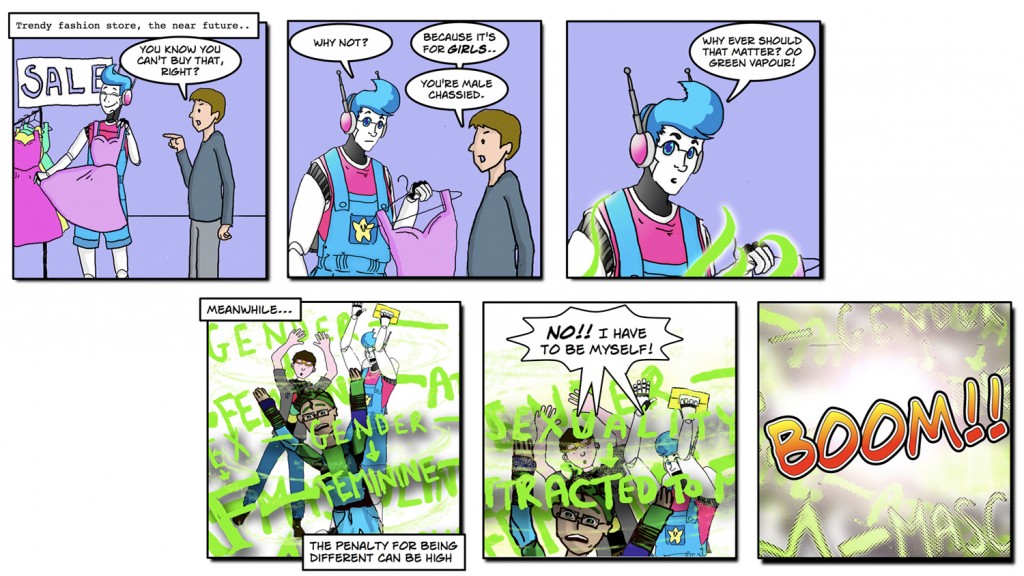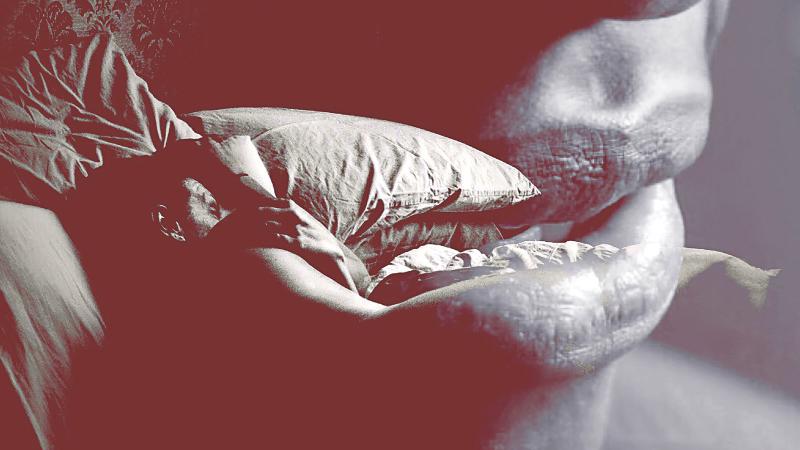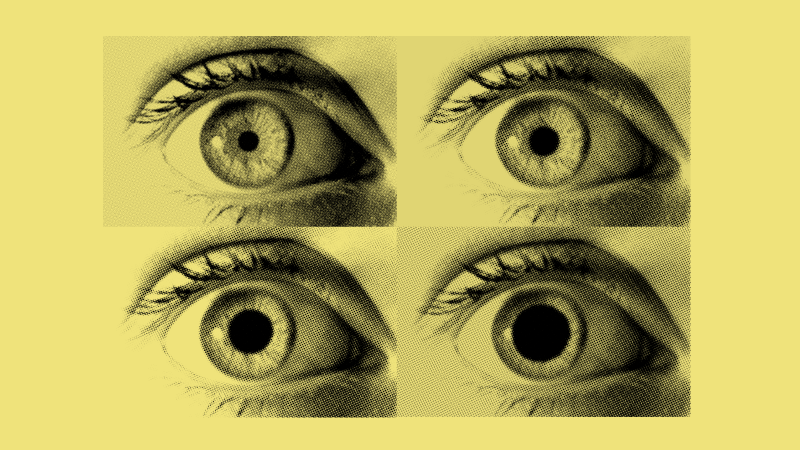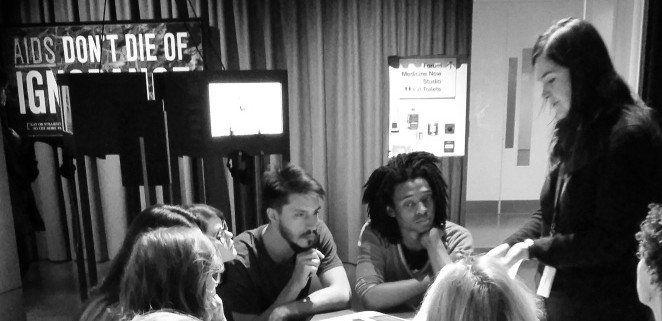Following on from our workshop at Berkeley, together with the Sexual Knowledge unit we organised a second two-day workshop on Mapping Sexual Knowledge: Therapy, Knowledge and Authority in London on 7th and 8th September. The event was kindly hosted by Wellcome Trust and funded by the University of Exeter’s HASS Strategy. Our aim was to bring together scholars from a range of disciplinary perspectives across the humanities and social sciences, and practitioners in therapy and counselling, writers, artists and activists, all working in the area of sexuality and gender. Continue reading
Public Engagement
Fighting for Sexual Rights in the Early Twentieth Century: Magnus Hirschfeld, Sexual Science and Anders als die Andern (1919)
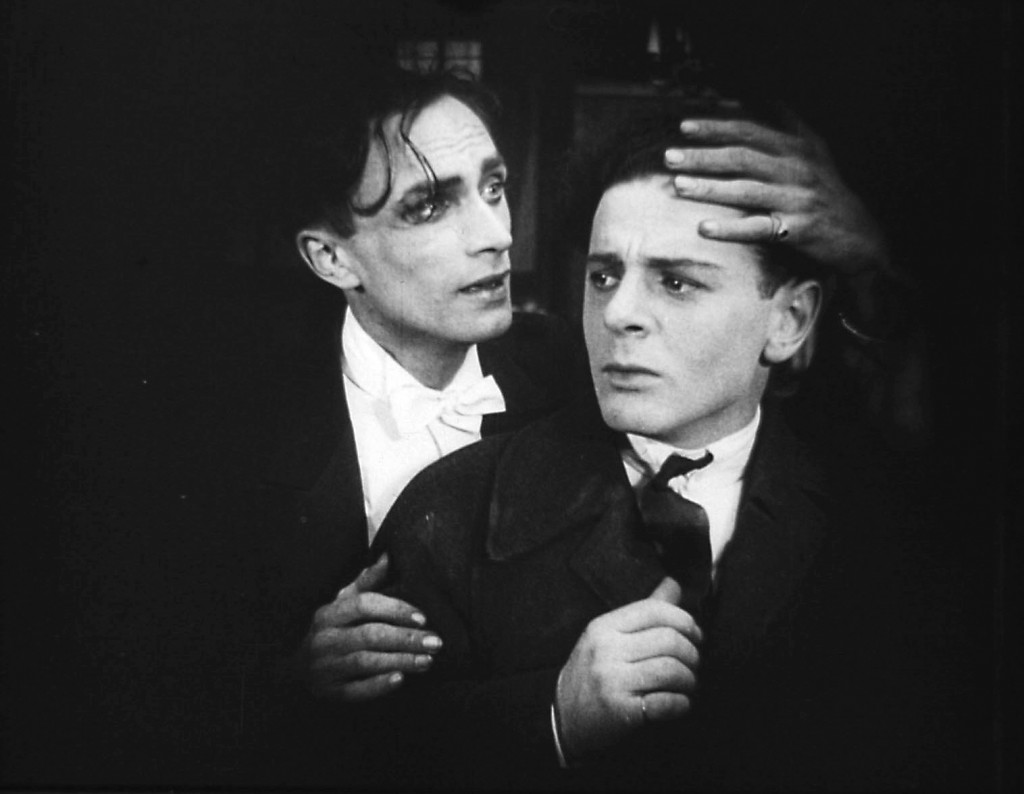
As part of LGBT History Month 2016 our project director Dr Jana Funke introduced and chaired a discussion on a special film screening by Exeter LGBTQ+ Society of Anders als die Andern (1919), a silent film accompanied by a musical score with English inter titles.
Released in 1919, Anders als die Andern [Different from the Others] is one of the first films in history to portray male homosexuality in a sympathetic light. It was directed by Richard Oswald (1880-1963) and tells the story of a homosexual musician who get blackmailed after falling in love with one of his protégés. The film was co-written by German-Jewish sexual scientist Magnus Hirschfeld (1868-1935), who also makes a brief appearance in the film.
Jana’s introduction discussed Hirschfeld and his role as one of the most important early sexual scientists and founder of the Institute for Sexual Research in Berlin. He is also remembered as a pioneering activist who advocated for gay, lesbian, trans and intersex rights throughout his life. The group discussion after the film considered the use of the film as part of the campaign to abolish Paragraph 175 of German law which criminalized homosexuality, and the way in which the film portrays of gay men, as well as its reception by mainstream European audiences at the time.
Gender Identities in the Past and Present: Hatshepsut & Akhenaten – LGBT History Month Special Event
For the first of our LGBT History Month 2016 events, Jana and Jen of the Rethinking Sexology project joined Dr Debbie Challis at the Petrie Museum of Egyptian Archaeology to discuss ideas about gender identity across history. Debbie spoke on depictions of the Egyptian pharaohs Hatshepshut and Akhenaten in the ancient world and how their allegedly ‘transgressive’ identities have been interpreted. Jana and Jen discussed how sexual scientists and other writers in the early twentieth century developed theories about gender and especially early notions of trans identities – ideas that still shape our modern understanding today. We considered how these ideas drew upon the past and specifically Egypt and the figures of Hatshepshut and Akhenaten.
Read a blog post by Dr Jen Grove on Notchesblog.com inspired by this event.
Transvengers – Gendered Intelligence and Wellcome Collection
Our project director Dr Jana Funke worked with a group of young trans* people aged 13-19 from Gendered Intelligence and artist Jason Barker to create the comic Transvengers.
This project responded to some of the themes and personalities in the Institute of Sexology exhibition at Wellcome Collection, informed by their own experiences as young trans people. The aim was to create a lighted hearted response to some really complicated ideas, in a way that everyone can understand and enjoy.
Each person designed their own Transvengers character who travels back in time to challenge key sexologists and their ideas – many of which continue to shape society’s thinking about sex and gender today.
You can view the comic online here.
Transvengers is a Wellcome Collection Youth Programme project.
* Someone who (at least partially) disagrees with the gender they were assigned at birth.
Wellcome Collection Sexology Season – Sex in the Afternoon at the Southbank
In summer 2015 Dr Jana Funke, our project director, took part in a discussion at the Southbank, London with four acclaimed writers – Malika Booker, Kei Miller, Warsan Shire and Rachel Mars – about how to make sense of sex.
The writers presented work which illustrates how radically different sex is for different people and invites us to consider sexuality from different perspectives, sometimes confronting cultural and religious taboos.
Jana discussed how literature contributes to our understanding of sexuality alongside scientific and medical research. The early pioneers of sexology research reached out beyond medical disciplines to understand our sexuality and in turn literary writers used ideas from science and medicine. She argued that this multi-disciplinary approach is important for contemporary research. Alongside brain scans, measuring hormone levels and genetics, literature helps us understand other dimensions of sex, the psychological, the social and the emotional.
Listen a podcast recording of the event here.
Read the full programme of the event here.
This was part of the Sexology Season at Wellcome Collection.
Wellcome Collection Symposium on Sexual Desire
In 2015, as part of the Institute of Sexology exhibition, our project director Professor Kate Fisher joined a panel discussion on sexual desire.
This discussion considered the way in which, from asexuality to sex addiction, there is huge variety in our experience of sexual desire. Both the temptation and the conflict it can create are enduring themes central to Western literature, yet sexual attraction has been little researched until recent decades. The panel suggested we are still largely in the dark about many facets of attraction, so having little or excessive desire can be difficult experiences.
Wellcome Collection Sexology Season Manchester: Sunday Salon
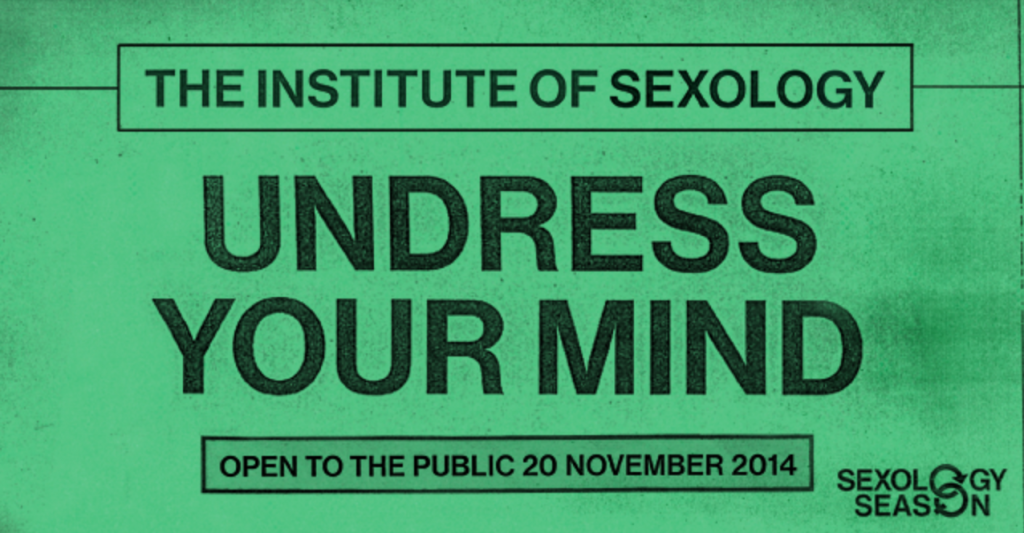 Our project director Dr Jana Funke took part in the Wellcome Collection Sexology Season, Manchester, March 2015. These events were designed to coincide with The Institute of Sexology exhibition.
Our project director Dr Jana Funke took part in the Wellcome Collection Sexology Season, Manchester, March 2015. These events were designed to coincide with The Institute of Sexology exhibition.
Jana joined Dr Helen Mathers (Open University) to talk about some of the issues raised by the work of the early sexual scientists featured in the exhibition, in particular 19th century prostitution, the definitions of sex work and the ‘victim narrative’.
Listen to the podcast of the event here.
Listen to more podcasts from The Sexology Season featuring discussions with sexual health professionals, researchers, artists, psychologists, sex workers, sex therapists and interesting questions and observations from audiences.
Photographs As Evidence – Institute of Sexology gallery workshops
In 2015 our projects director Dr Jana Funke ran a series of workshops in The Institute of Sexology galleries at the Wellcome Collection. She examined photographs from late 19th and early 20th century sexual science publications to explore how these sex researchers used and interpreted photographic evidence. What role did such photographs play in allowing individuals to explore their own gender identity and sexuality? Read Jana’s write-up blog of the event.
After the event, visitors had the option to have their picture taken by photographic artist Bret Syfert. Bret turned the shots into gender blurring portraits. See the results and read Bret’s write-up blog of the event.


